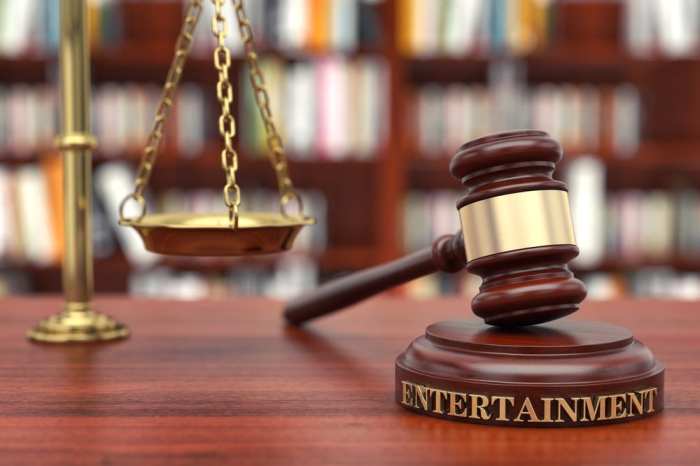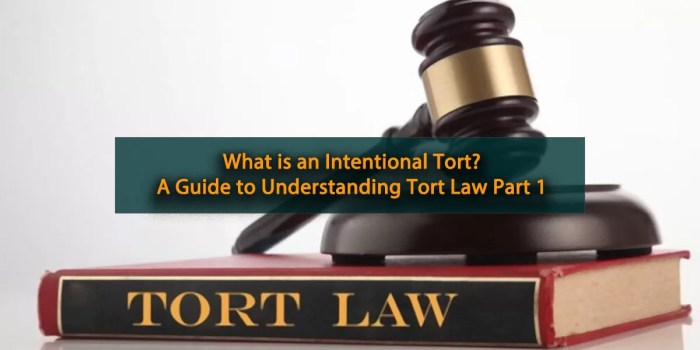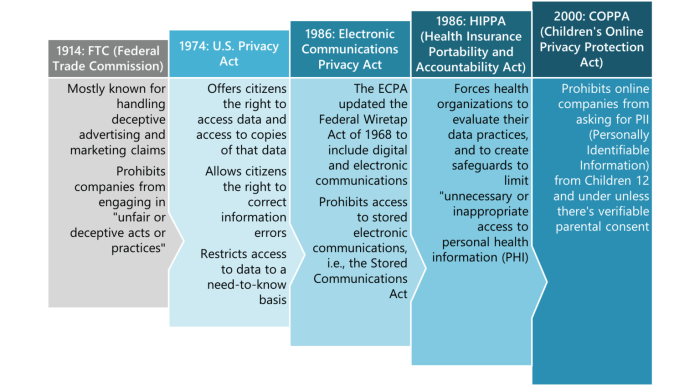As Entertainment Law takes center stage, this opening passage beckons readers into a world crafted with good knowledge, ensuring a reading experience that is both absorbing and distinctly original.
Entertainment Law encompasses a wide array of legal issues that are crucial to the entertainment industry, from intellectual property rights to licensing agreements, each playing a pivotal role in shaping the landscape of show business.
Introduction to Entertainment Law
Entertainment law is a specialized area of legal practice that deals with various legal issues within the entertainment industry. It encompasses a wide range of topics, including intellectual property rights, contracts, licensing agreements, and more.
Intellectual Property
Intellectual property is a key aspect of entertainment law, covering copyrights, trademarks, and patents that protect creative works such as music, films, books, and inventions. These rights are essential for creators to control and monetize their work in the entertainment industry.
Contracts
Contracts play a crucial role in the entertainment industry, governing agreements between artists, producers, agents, and other parties involved in the creation and distribution of entertainment content. These contracts Artikel the terms of engagement, compensation, rights, and obligations of each party.
Licensing Agreements
Licensing agreements are prevalent in the entertainment industry, allowing rights holders to grant permission for others to use their intellectual property in exchange for fees or royalties. These agreements are common in music, film, television, and merchandise licensing, providing a legal framework for the exploitation of creative works.Examples of how entertainment law impacts different sectors of the entertainment industry include disputes over songwriting credits, infringement of trademarks in merchandising, breach of contract in film production, and licensing negotiations for streaming platforms.
Understanding and navigating the complexities of entertainment law are essential for all stakeholders in the industry to protect their rights and interests.
Intellectual Property in Entertainment Law
Intellectual property plays a crucial role in the entertainment industry, as it allows creators to protect their original works and ensures that they can benefit from their creations. Without intellectual property rights, artists, musicians, filmmakers, and other creatives would be unable to control the use and distribution of their work, leading to potential exploitation and loss of revenue.
Types of Intellectual Property Protection
- Copyrights: Copyright protection gives creators exclusive rights to reproduce, distribute, perform, and display their original works. This includes music, films, books, and other creative works.
- Trademarks: Trademarks protect symbols, logos, and brand names used to identify and distinguish goods and services in the marketplace. This helps prevent consumer confusion and ensures brand recognition.
- Patents: While less common in the entertainment industry, patents can protect inventions and processes related to entertainment technology or products.
Resolution of Intellectual Property Disputes
Intellectual property disputes in the entertainment industry are often complex and require specialized knowledge of copyright, trademark, and contract law. Disputes can arise over issues such as unauthorized use of copyrighted material, infringement of trademarks, or breach of licensing agreements.To resolve these disputes, entertainment lawyers may utilize strategies such as negotiation, mediation, arbitration, or litigation.
In some cases, alternative dispute resolution methods like mediation or arbitration can provide a faster and more cost-effective way to reach a resolution. However, litigation may be necessary in cases where a settlement cannot be reached or where significant damages are at stake.Intellectual property disputes in entertainment law highlight the importance of protecting creative works and ensuring that artists and creators receive fair compensation for their contributions to the industry.
Contracts and Agreements in Entertainment Law
Contracts and agreements play a crucial role in the entertainment industry, serving as the legal framework that governs relationships between various parties involved in the creation, production, distribution, and exploitation of content.
Significance of Contracts and Agreements
Contracts and agreements in entertainment law are essential for defining the rights and obligations of parties involved in a project. They help protect the intellectual property of creators, ensure fair compensation, and establish the parameters for how content will be used and distributed.
Common Clauses in Entertainment Contracts
- Royalties: Specifies how and when artists, writers, and other creators will be compensated for the use of their work.
- Exclusivity: Determines whether a party has the exclusive right to represent an artist, distribute content, or exploit intellectual property.
- Term: Defines the duration of the agreement and when it can be terminated.
- Rights: Details the specific rights granted to each party, such as distribution, merchandising, and performance rights.
- Indemnification: Specifies who is responsible for legal claims and liabilities arising from the project.
Differences Between Talent Contracts, Distribution Agreements, and Production Contracts
| Talent Contracts | Distribution Agreements | Production Contracts |
|---|---|---|
| Focus on the relationship between artists/performers and their representation. | Deal with the distribution and licensing of content to various platforms and outlets. | Cover the production and financing of a project, including hiring crew, securing locations, and obtaining necessary permits. |
| Include clauses related to royalties, exclusivity, and performance obligations. | Address issues like territory, revenue sharing, and marketing commitments. | Involve terms regarding budget, scheduling, insurance, and intellectual property ownership. |
Licensing in Entertainment Law

In the realm of entertainment law, licensing plays a crucial role in granting permission to use intellectual property in various forms of media. Licensing agreements are legal contracts that Artikel the terms and conditions under which a licensee can use the licensor’s intellectual property.
Examples of Licensing Agreements
- Music: In the music industry, artists often license their songs to be used in commercials, movies, or video games. These agreements detail the rights granted to the licensee, such as the duration and territory of use, as well as the payment structure.
- Film: Film producers frequently obtain licenses to use copyrighted material, such as music, artwork, or literary works, in their movies. These agreements ensure that the producers have the necessary rights to include the content in their films.
- Television: Television networks may license characters, trademarks, or logos for use in their shows. For example, a cartoon character appearing in a TV series may require a licensing agreement with the character’s creator.
Legal Implications of Licensing Intellectual Property
Licensing intellectual property in the entertainment industry raises several legal considerations. It is essential to clearly define the scope of rights granted, the payment terms, and any restrictions on use to avoid potential disputes. Additionally, ensuring that the licensor owns the rights being licensed is crucial to prevent infringement claims.
Regulations and Compliance in Entertainment Law
Entertainment companies operate within a complex regulatory framework that governs various aspects of the industry. From intellectual property rights to labor laws, compliance is essential to avoid legal issues and protect the interests of all parties involved.
Regulatory Framework in Entertainment Law
Entertainment companies must adhere to a multitude of laws and regulations that govern their operations. These include:
- Intellectual Property Laws: Protecting copyrights, trademarks, and patents to safeguard creative works and innovations.
- Labor and Employment Laws: Ensuring fair treatment of employees, proper payment, and adherence to workplace safety regulations.
- Privacy Laws: Safeguarding personal information of clients, customers, and employees from unauthorized use or disclosure.
- Advertising Regulations: Preventing false or misleading advertising practices that could deceive consumers.
Compliance Challenges in Entertainment Law
Despite their best efforts, entertainment businesses face several key compliance challenges, including:
- Complex Licensing Requirements: Navigating the intricacies of obtaining licenses for content distribution, music performances, and other entertainment activities.
- Contractual Obligations: Ensuring all contracts and agreements comply with legal standards and protect the rights of all parties involved.
- Censorship and Content Restrictions: Adhering to regulations on content creation and distribution that vary across different jurisdictions.
- Data Protection Laws: Handling sensitive data in compliance with privacy regulations to prevent data breaches and unauthorized access.
Ethics and Moral Rights in Entertainment Law
In the realm of entertainment law, ethical considerations play a crucial role in ensuring the fair treatment of creators, artists, and other stakeholders. These considerations are vital in maintaining a balance between legal rights and ethical standards within the entertainment industry.
One key aspect of ethical considerations in entertainment law is the concept of moral rights.Moral rights pertain to the non-economic rights of creators over their works, allowing them to claim authorship and integrity of their creations. These rights are intrinsic to the individual creator and are often viewed as essential for protecting the artistic and reputational integrity of the work.
Moral rights include the right of paternity (attribution), the right of integrity (to object to distortion or modification of the work), and the right of disclosure (to decide when and how the work is revealed to the public).
Balancing Legal Rights and Ethical Standards
In the field of entertainment law, balancing legal rights with ethical standards is a complex task. While legal rights provide creators and entities with the necessary protection for their intellectual property, ethical considerations ensure that the rights of all parties involved are respected.
This balance is particularly challenging in cases where legal rights may conflict with ethical norms or societal values.
- Entertainment law often navigates the fine line between protecting intellectual property rights and upholding ethical standards in creative industries.
- Ethical considerations in entertainment law require practitioners to evaluate the impact of their decisions on creators, consumers, and the industry as a whole.
- Issues such as cultural appropriation, representation, and exploitation are ethical dilemmas that entertainment law must address to promote fairness and social responsibility.
- By incorporating moral rights principles into legal frameworks, entertainment law can enhance the protection of creators’ rights and promote ethical practices within the industry.
Litigation and Dispute Resolution in Entertainment Law
In the realm of entertainment law, litigation plays a crucial role in resolving disputes that arise between various parties. Whether it’s a breach of contract, copyright infringement, or other legal issues, litigation is often the last resort when negotiations fail to reach a resolution.
Litigation Process in Entertainment Law
When a dispute escalates to the point of litigation, the process typically involves filing a complaint, conducting discovery, presenting evidence, and ultimately going to trial. This can be a lengthy and costly process, but it is necessary to protect the rights and interests of the parties involved.
Dispute Resolution in Entertainment Industry
Disputes within the entertainment industry are often resolved through negotiation, mediation, or arbitration. These alternative dispute resolution methods offer a more efficient and cost-effective way to settle conflicts without the need for a full-blown court trial.
Comparison of Alternative Dispute Resolution Methods
- Arbitration: In arbitration, a neutral third party hears both sides of the dispute and makes a binding decision. This process is often faster and more confidential than traditional litigation.
- Mediation: Mediation involves a neutral mediator who helps the parties reach a mutually acceptable agreement. While the mediator does not make a decision, they facilitate communication and negotiation between the parties.
International Aspects of Entertainment Law
When delving into the realm of entertainment law, it is crucial to consider the international implications that come into play. The interconnected nature of the entertainment industry means that legal matters often transcend borders, leading to a complex web of regulations and agreements that impact professionals worldwide.
Global Implications of Entertainment Law
- Entertainment law governs various aspects such as copyright, trademarks, licensing, and distribution, all of which have global reach due to the digital landscape.
- International collaborations in film, music, and other forms of entertainment require adherence to different legal frameworks, making it essential for professionals to navigate diverse legal systems.
- Issues like piracy, intellectual property theft, and content regulation extend beyond national boundaries, necessitating a cohesive approach to legal matters on a global scale.
International Treaties and Agreements in Entertainment Law
- International treaties like the Berne Convention and WIPO Copyright Treaty establish standards for intellectual property protection across countries, shaping the legal landscape for creators and rights holders.
- Agreements such as trade deals and cultural exchange pacts impact the flow of entertainment products and services between nations, influencing legal requirements and business practices.
- Compliance with international agreements is crucial for entertainment professionals to ensure that their work is recognized and protected in foreign markets, fostering cross-border collaborations.
Challenges of Navigating Legal Systems in Different Countries
- Differences in legal traditions, language barriers, and varying interpretations of laws pose challenges for entertainment professionals seeking to operate in multiple countries.
- Complexities in contractual agreements, dispute resolution mechanisms, and enforcement of rights require a deep understanding of local laws and customs to avoid legal pitfalls.
- Cultural sensitivities, censorship laws, and political influences in different regions can impact creative freedom and content distribution, necessitating a nuanced approach to legal compliance.
Emerging Issues in Entertainment Law
In today’s rapidly evolving landscape of entertainment law, several emerging issues are reshaping the industry and challenging legal practices. These issues are influenced by a combination of technological advancements, shifting societal norms, and the dynamic nature of the entertainment business.
Impact of Technology on Entertainment Legal Practices
Technology continues to revolutionize the way entertainment content is created, distributed, and consumed. The rise of streaming services, social media platforms, and digital content has led to complex legal challenges in copyright enforcement, digital rights management, and data privacy. Entertainment lawyers must navigate these new digital landscapes to protect their clients’ intellectual property rights and ensure compliance with evolving regulations.
Evolving Societal Norms and Entertainment Law
Societal norms play a crucial role in shaping the content produced by the entertainment industry. As societal values and expectations change, legal issues related to censorship, representation, and cultural appropriation become increasingly prominent. Entertainment lawyers are tasked with addressing these sensitive issues while balancing their clients’ creative freedom with ethical and moral considerations.
The intersection of entertainment law and social justice movements further complicates these matters, requiring legal professionals to stay informed and adapt to evolving norms.
Challenges in Protecting Intellectual Property Rights
With the rise of digital piracy, deepfakes, and AI-generated content, protecting intellectual property rights in the entertainment industry has become more challenging than ever. Entertainment lawyers are faced with the task of safeguarding their clients’ creative works from unauthorized use and infringement in a rapidly changing digital landscape.
The development of new technologies and platforms requires legal professionals to stay vigilant and proactive in addressing these emerging threats to intellectual property rights.
Closing Summary
In conclusion, Entertainment Law serves as the backbone of the entertainment industry, safeguarding the rights of creators and performers while navigating the complex web of legalities that govern the world of entertainment. With its ever-evolving nature, this intricate field continues to be at the forefront of shaping the future of entertainment.

